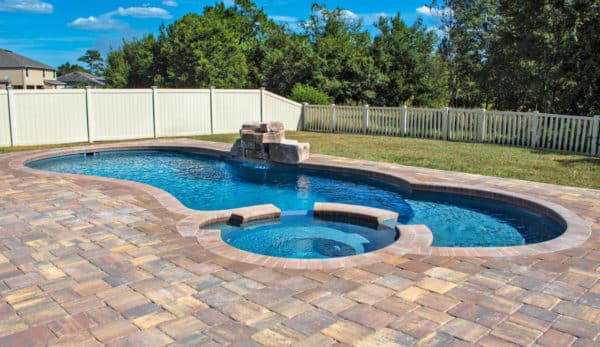Prevention of leak and crack on fiberglass pools:
Fiberglass pools are known for their durability and low maintenance. However like any pool, they require proper care to avoid potential issues like leaks or cracks. These problems, if not addressed, can compromise the pool’s structure and lead to costly repairs. Understanding the key factors that can cause such damage and knowing how to prevent them is essential for maintaining the longevity of your fiberglass pool. In this discussion, we’ll explore the best practices and preventive measures that pool owners and professionals can follow to ensure the pool remains in excellent condition for years to come.
Professional Installation to avoid make prevention of leak or crack on your pool
Ensuring a proper installation is the first step in preventing leaks or cracks in a fiberglass pool. Always hire experienced professionals who are familiar with fiberglass pools. They should ensure the pool is placed on a stable, well-compacted base. Poorly prepared ground can shift over time, which may cause the fiberglass shell to crack. A stable foundation is crucial for long-term durability.
Consistent Water Levels
Maintaining consistent water levels is essential. Avoid drastic water level changes, especially draining the pool completely. The water provides support to the fiberglass shell, and removing it can create pressure imbalances. This can lead to crack and leak or even shifting of the pool’s structure. If you need to lower the water, consult a pool expert to do so safely.
Protection from Sharp Objects
Sharp objects pose a significant risk to the integrity of fiberglass pools. Avoid allowing anything sharp or heavy to come into contact with the pool surface. Items like pool cleaning tools, toys, and furniture should be used cautiously. These objects can scratch or puncture the fiberglass, potentially leading to leaks or structural damage over time.
Routine Inspections and Maintenance
Regularly inspect your pool for signs of damage, like small cracks, blisters, or soft spots. Catching minor issues early can prevent larger, more expensive repairs. Additionally, routine cleaning prevents algae and dirt buildup, which can erode the surface over time. Clean your pool with gentle, non-abrasive tools to protect the fiberglass coating.
Balanced Water Chemistry
Proper water chemistry is essential for protecting your fiberglass pool. Imbalanced water can cause the fiberglass to deteriorate or develop cracks. Keep a close eye on pH, alkalinity, and calcium hardness levels. These should be regularly tested and adjusted to prevent chemical-related damage to the pool shell.
Avoid Excessive Weight
Be mindful of heavy loads around your pool. Large objects, like heavy furniture or outdoor equipment, should not be placed too close to the pool’s edge. Excessive weight can cause stress on the fiberglass structure and lead to cracks.
Prompt Professional Repairs
When damage does occur, it’s essential to have it repaired by a professional. Avoid attempting DIY fixes, as improper repairs can lead to bigger problems. Professionals will ensure that cracks or leaks are properly sealed to prevent further deterioration.

